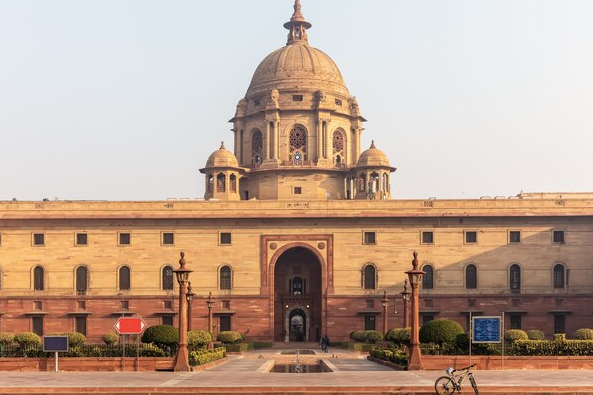Plaintiff Is Not Obligated To Make A Prayer In The Plaint To Set Aside The Subsequent Sale Deed If It Is Executed With A Prior Knowledge Of Agreement To Sell


By a recent judgement, passed in the matter of Maharaj Singh And Ors. v. Karan Singh And Ors.[i], the Hon’ble Supreme Court [“SC”], upheld and relayed the observation made by a larger bench by deciding in favour of the Plaintiff. The SC held that if subsequent sale deeds are executed with a prior knowledge of existence of an agreement to sell, the Plaintiff may not pray for setting aside of the subsequent sale deeds.
BRIEF FACTS:
An Agreement to Sell was executed by Defendant No. 1, registered on 7th December 1981 (“said Agreement”), wherein he had agreed to sell his Bhumidhari land admeasuring 2.90 acres of Khasra no. 48 at Jauniwala, Kashipur, Nainital (“said Property”) in favour of the Plaintiffs for the consideration of Rs. 20,300/- (Rupees Twenty Thousand Three Only). As per the said Agreement, the Defendant No. 1 had received an advance amount of Rs. 7,000/- (Rupees Seven Thousand Only) and the balance was to be paid at the time of execution of the sale deed.
Thereafter, Plaintiffs have made an oral request and through notices to Defendant No. 1 to execute the sale deed, which he had agreed to execute within three years from the date of the said Agreement. Further, Defendant No. 1 decided to sell 1.60 acres out of the said property to Defendant Nos. 2 and 3 through a registered sale deed on 6th September 1983. Subsequently, the remaining part of the said property was sold to the Defendant Nos. 2 to 4 (“Appellants”). As per the written statement filed by the legal representative of Defendant No. 1, the said agreement was a fictitious document and as per written statements filed by Defendant Nos. 2 and 3, the said Agreement was a forged document. Hence as per the Defendants, it was not supposed to be acted upon.
The Ld. Trial Court had passed a decree for specific performance of the said Agreement, instructing the Defendants to execute the sale deed and deliver possession of the said property to the Plaintiffs. The Ld. trial court was convinced that the said Agreement was valid and hence Appellants were not held as bona fide purchasers as they were deemed to have a notice of the execution of the said agreement under explanation of Section 3 of Transfer of Property Act, 1882[ii] (“TP Act”) and they had a duty to ascertain whether there was any prior transfer of the said property or not.
An appeal, filed by the Appellants, was dismissed by the Ld. Additional District Judge, Nainital, wherein the findings of the Ld. Trial Court were validated. The Appellants had filed a second appeal which was again dismissed (“Impugned Judgment”). Hence, the present appeal before the Hon’ble SC was preferred by the Appellants.
Issues:
The SC framed the following issues:
- Is it permissible to contend that the said Agreement was bogus and unlawful and not intended to be adhered to, despite the provisions of Sections 91 and 92 of the Indian Evidence Act, 1872? Moreover, can the said Agreement be constituted as bogus or sham?
- Can the appellants, without knowing about the existence of the said Agreement be referred to as bona fide purchasers?
- Given the decision this Court rendered in the B. Vijaya Bharathi case[iii], can the Plaintiffs be awarded a specific performance decree without praying for the two subsequent sale deeds to be set aside?
- Do the Zamindari Abolition Act’s stipulations bar the sale deed from being executed in line with the terms of the said Agreement?
- Are the Plaintiffs eligible for a decree of specific performance?
FINDINGS OF THE COURT
The findings of the SC for the above framed issues are as follows:
Issue (1):
The legal representative of Defendant No. 1 never indicated in the written statements of his vices as well as the contention that the said Agreement was signed to stop Defendant No. 1 from selling the said property. Consequently, the SC rejected the argument that the said Agreement was followed as a caution to prevent Defendant No. 1 from selling the suit property to satisfy the requirements of his vices. Therefore, the said Agreement was not bogus or sham.
Issue (2):
The court observed that the Appellants have provided no evidence whatsoever regarding the said Agreement’s registered instrument status. This implies that the Appellants should be presumed to be aware of the registered suit agreement. Considering the constructive notice, it is impossible to claim that the Appellants were oblivious of the said Agreement. Before obtaining the sale deeds in their name, they never searched the Sub Registrar’s office. Therefore, one cannot claim that they paid Defendant No. 1 money in good faith. Therefore, the Appellants cannot be deemed as bona fide purchasers who have paid consideration in good faith without the knowledge of the said Agreement.
Issue (3):
In this regard, the court drew upon the previous ruling pronounced by a panel of three hon’ble judges in the case of Lala Durga Prasad vs Lala Deep Chand[iv]. In such a scenario, the court observed that an accurate decree is the achieved when the court orders specific performance of a contract and directing the subsequent transferee to participate in the transfer to ensure that the plaintiff obtains complete title to the property. The Hon’ble SC observed that the decision rendered in B. Vijaya Bharathi case (supra) was given by a two-judge bench, making it a non-binding precedent. Thus, the court opined that plaintiffs can be awarded a specific performance decree without praying for the two subsequent sale deeds to be set aside.
Issue (4):
Pertaining to this issue, the court glanced at section 154-B of the Zamindari Abolition Act and decided that selling agricultural land to non-agriculturists is not permitted. Moreover, this prohibition does not apply in the case of agreement to sell. Moreover, the court decided that the vendor impliedly is obligated to get permission to sell the said land. Thus, if there is authorization to sell the said property, the decree of specific performance can be passed.
Issue (5):
Since Plaintiff No. 2 was not interested in availing the specific performance, the court decided in this case that the decree of specific performance is limited to one-half share in the said property in favour of Plaintiff No. 1.
CONCLUSION
Therefore, the Hon’ble SC in this regard has partially allowed the appeal and modified the Impugned Order by directing the Appellants and legal representative of Defendant No. 1 to execute the sale deed in favour of Plaintiff No. 1 limited to one-half share in the said property.
The authors believe that the decision is logical, just, and equitable. It acknowledges that in such situations the main concerns are the earlier agreement to sell and the subsequent sale deed executed in defiance of that agreement. The Court notes that the underlying dispute depends on the contractual rights and obligations between the parties rather than procedural formalities by not precisely demanding a specific prayer in the plaint.
[i] 2024 SCC OnLine SC 1668.
[ii] Section 3 of Transfer of Property Act, 1882-
In this Act, unless there is something repugnant in the subject or context,–
“immoveable property” does not include standing timber, growing crops or grass; “instrument”, means a non-testamentary instrument;
1 [“attested”, in relation to an instrument, means and shall be deemed always to have meant attested by two or more witnesses each of whom has seen the executant sign or affix his mark to the instrument, or has seen some other person sign the instrument in the presence and by the direction of the executant, or has received from the executant a personal acknowledgement of his signature or mark, or of the signature of such other person, and each of whom has signed the instrument in the presence of the executant; but it shall not be necessary that more than one of such witnesses shall have been present at the same time, and no particular form of attestation shall be necessary;]
“registered” means registered in 2[3[any part of the territories] to which this Act extends] under the laws4 for the time being in force regulating the registration of documents;
“attached to the earth” means–
(a) rooted in the earth, as in the case of trees and shrubs;
(b) imbedded in the earth, as in the case of walls or buildings; or
(c) attached to what is so imbedded for the permanent beneficial enjoyment of that to which it is attached;
5[“actionable claim” means a claim to any debt, other than a debt secured by mortgage of immoveable property or by hypothecation or pledge of moveable property, or to any beneficial interest in moveable property not in the possession, either actual or constructive, of the claimant, which the Civil Courts recognise as affording grounds for relief, whether such debt or beneficial interest be existent, accuring, conditional or contingent;]
6[“a person is said to have notice”] of a fact when he actually knows that fact, or when, but for wilful abstention from an enquiry or search which he ought to have made, or gross negligence, he would have known it.
[iii] (2018) 11 SCC 761.
[iv] (1953) 2 SCC 509.




